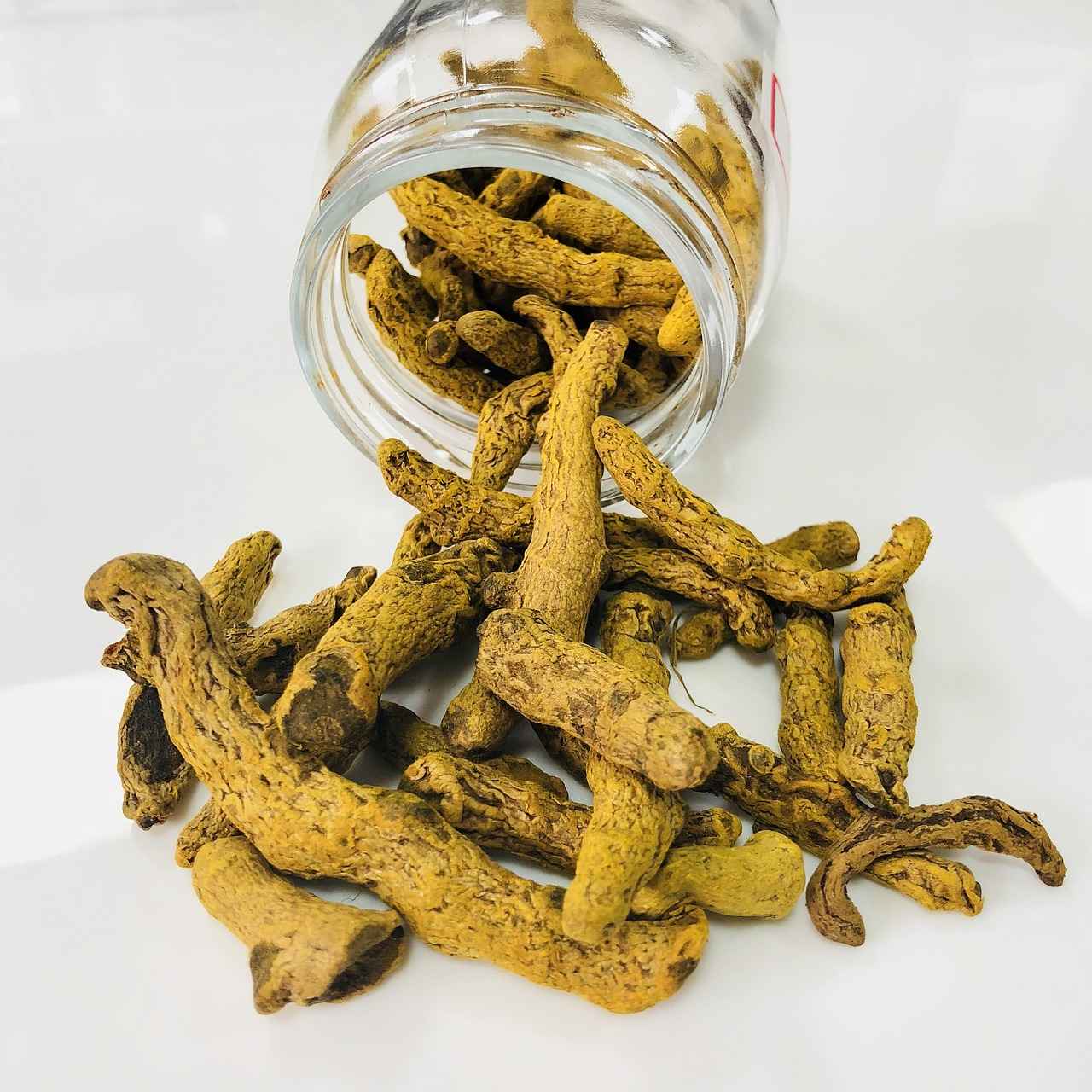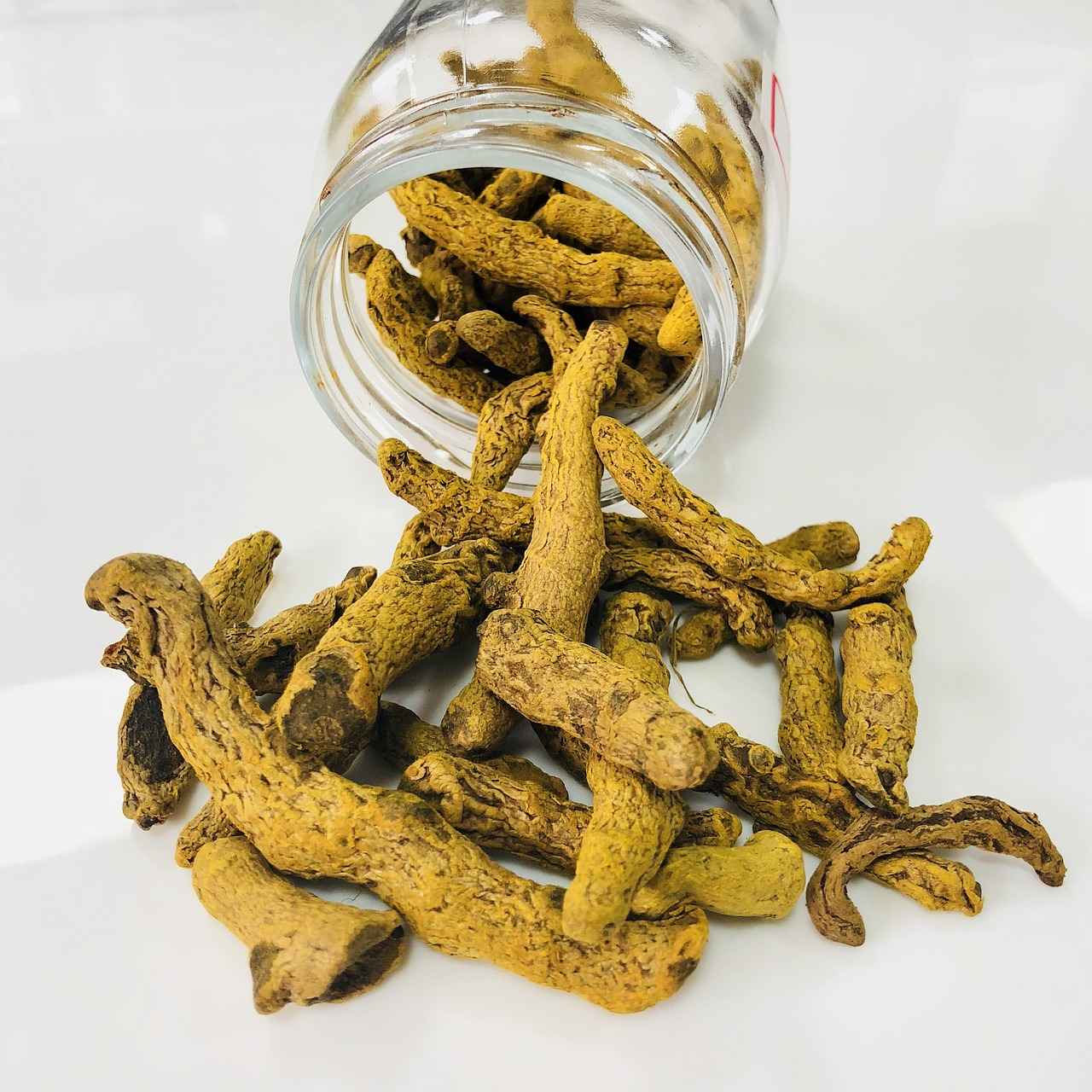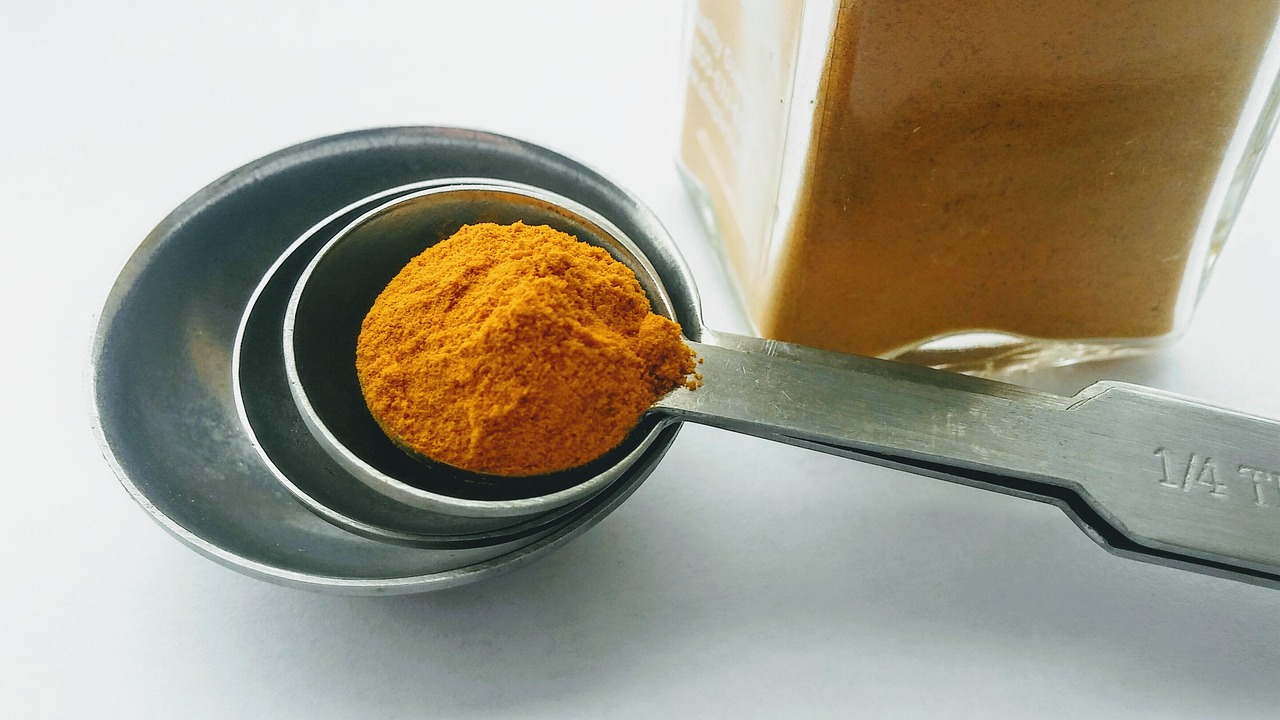This article delves into curcumin, the active compound found in turmeric, emphasizing its remarkable anti-inflammatory properties, various health benefits, and the scientific research that supports its efficacy. Explore how curcumin can significantly enhance your overall well-being.
What is Curcumin?
Curcumin is the primary bioactive component of turmeric, a spice that has been cherished for its vibrant yellow color and numerous health advantages for centuries. It is increasingly recognized in modern health discussions for its potential to support various bodily functions.
Health Benefits of Curcumin
Curcumin is celebrated for its extensive health benefits, particularly its potent anti-inflammatory and antioxidant effects. Research indicates that it may help in managing chronic diseases and promoting general health.
Anti-Inflammatory Properties
One of the most notable benefits of curcumin is its ability to reduce inflammation. Studies have shown that it can inhibit multiple inflammatory pathways, making it a valuable supplement for individuals suffering from inflammatory conditions.
Mechanism of Action
Curcumin interacts with various molecular targets within the body, modulating inflammatory responses. Understanding these mechanisms can illuminate its therapeutic potential for a range of diseases.
Research Supporting Anti-Inflammatory Effects
Numerous clinical studies have validated curcumin’s effectiveness in alleviating inflammation associated with conditions such as arthritis, heart disease, and inflammatory bowel disease, highlighting its role as a natural remedy.
Antioxidant Benefits of Curcumin
In addition to its anti-inflammatory properties, curcumin acts as a powerful antioxidant. It helps neutralize free radicals, thereby reducing oxidative stress and potentially lowering the risk of chronic diseases.
Curcumin and Chronic Diseases
Research suggests that curcumin may play a crucial role in preventing and managing chronic diseases, including cancer, heart disease, and diabetes. Its multifaceted effects make it a significant focus in medical research.
Curcumin in Cancer Prevention
Studies have indicated that curcumin may inhibit cancer cell growth and induce apoptosis, positioning it as a promising candidate for cancer prevention and treatment. Ongoing research continues to explore its full potential.
Curcumin’s Role in Heart Health
Curcumin may also contribute to heart health by enhancing endothelial function, reducing inflammation, and lowering cholesterol levels, making it an excellent addition to a heart-healthy lifestyle.
How to Incorporate Curcumin into Your Diet
Integrating curcumin into your diet can be both simple and enjoyable. Turmeric powder can be added to various dishes, smoothies, and beverages, providing health benefits along with its unique flavor.
Turmeric Supplements
For those seeking concentrated doses of curcumin, turmeric supplements are readily available. It is essential to choose high-quality products and consult with a healthcare professional before starting any new supplement regimen.
Cooking with Turmeric
Using turmeric in cooking not only enhances flavor but also boosts the nutritional value of meals. Explore diverse recipes that highlight turmeric’s versatility and health benefits.
Potential Side Effects and Considerations
While curcumin is generally safe for most individuals, some may experience side effects or interactions with medications. Awareness of these factors is vital when considering curcumin supplementation.
Possible Side Effects
Common side effects of curcumin may include digestive upset or allergic reactions. Understanding these potential issues can guide individuals in making informed decisions regarding its use.
Interactions with Medications
Curcumin may interact with certain medications, such as blood thinners and anti-inflammatory drugs. Consulting a healthcare provider is advisable to avoid adverse effects.
Conclusion: Embracing Curcumin for Better Health
Curcumin stands out as a powerful natural compound with significant anti-inflammatory and antioxidant benefits. By incorporating it into your diet, you can enhance your overall health and well-being.

What is Curcumin?
Curcumin is a remarkable natural compound derived from turmeric, a spice that has been celebrated for its vibrant yellow hue and extensive health benefits. Traditionally utilized in various medicinal practices, curcumin has gained traction in contemporary health discussions due to its impressive therapeutic properties. This article delves into the essence of curcumin, exploring its origins, benefits, and the scientific research that underscores its significance.
Curcumin is the primary bioactive component in turmeric, scientifically known as Curcuma longa. This compound is responsible for turmeric’s distinctive color and is renowned for its numerous health-promoting attributes. Historically, it has played a vital role in traditional medicine systems, such as Ayurveda and Traditional Chinese Medicine, where it has been used to treat a variety of ailments.
In recent years, curcumin has attracted considerable attention from the scientific community, leading to a wealth of research aimed at understanding its mechanisms and potential health benefits. Studies have shown that curcumin possesses powerful anti-inflammatory and antioxidant properties, making it a valuable asset in the fight against chronic diseases.
Curcumin is celebrated for its multifaceted health benefits. Its potent anti-inflammatory properties help combat inflammation at the molecular level, which is crucial for managing chronic conditions such as arthritis, heart disease, and even certain cancers. Additionally, its antioxidant capabilities aid in neutralizing harmful free radicals, potentially reducing oxidative stress and promoting overall health.
Integrating curcumin into your daily routine can be both simple and enjoyable. One effective way is by using turmeric powder in cooking, which can enhance the flavor of various dishes. Furthermore, turmeric supplements are available for those seeking concentrated doses of curcumin. However, it is advisable to consult with a healthcare professional before starting any new supplement regimen.
In conclusion, curcumin stands out as a powerful natural compound with significant health benefits. By incorporating curcumin into your diet, you can take proactive steps towards enhancing your overall well-being and potentially mitigating the risk of chronic diseases.

Health Benefits of Curcumin
Curcumin, the active compound found in turmeric, is renowned for its remarkable health benefits. Its properties extend far beyond culinary uses, making it a focus of scientific research and holistic health practices. This article delves into the various health benefits of curcumin, particularly its anti-inflammatory and antioxidant capabilities, and how it can contribute to overall wellness.
1. Potent Anti-Inflammatory Properties
Chronic inflammation is linked to numerous health issues, including heart disease, cancer, and autoimmune disorders. Curcumin’s ability to inhibit inflammatory markers makes it a powerful ally in managing these conditions. Studies suggest that curcumin can effectively reduce inflammation by blocking specific pathways in the body, making it beneficial for individuals suffering from inflammatory diseases.
2. Powerful Antioxidant Effects
Curcumin is not only an anti-inflammatory agent but also a potent antioxidant. It helps neutralize free radicals, which can cause cellular damage and lead to chronic diseases. By reducing oxidative stress, curcumin may lower the risk of conditions such as diabetes and heart disease, promoting a healthier life.
3. Support for Chronic Disease Management
Research has indicated that curcumin may play a role in managing chronic diseases like cancer and heart disease. Its multifaceted effects, from reducing inflammation to improving metabolic health, make it a subject of interest in ongoing medical studies. For instance, some studies suggest that curcumin may inhibit the growth of cancer cells and induce apoptosis (programmed cell death), highlighting its potential in cancer prevention.
4. Enhancing Mental Health
Emerging research points to curcumin’s potential benefits for mental health. It may help alleviate symptoms of depression and anxiety by boosting levels of brain-derived neurotrophic factor (BDNF), a protein linked to improved brain function. This suggests that curcumin could be a natural adjunct in mental health treatment.
5. How to Incorporate Curcumin into Your Diet
- Add turmeric powder to soups, stews, and smoothies.
- Use turmeric in cooking rice or grain dishes for added flavor and health benefits.
- Consider high-quality turmeric supplements, but consult with a healthcare provider first.
Conclusion
Incorporating curcumin into your daily routine can offer numerous health benefits. Its anti-inflammatory and antioxidant properties make it a valuable addition to a balanced diet. As research continues to unveil its potential, curcumin stands out as a natural compound that can enhance overall health and well-being.
Anti-Inflammatory Properties
Curcumin, the active compound in turmeric, is renowned for its remarkable . This article delves into how curcumin works to combat inflammation, its health benefits, and the scientific research that underscores its effectiveness.
Inflammation is a natural response by the body to injury or infection. However, chronic inflammation can lead to various health issues, including arthritis, heart disease, and even cancer. Curcumin has emerged as a powerful ally in the fight against such conditions, offering a natural alternative to conventional anti-inflammatory medications.
Curcumin operates at a molecular level by targeting multiple inflammatory pathways. It inhibits the activity of various pro-inflammatory molecules, such as cytokines and enzymes, which play a significant role in the inflammatory process. This multi-target approach not only helps in reducing inflammation but also promotes overall health.
A plethora of studies have demonstrated curcumin’s effectiveness in managing inflammation. For instance, a study published in the Journal of Medicinal Food highlighted that curcumin significantly reduced markers of inflammation in patients with osteoarthritis. Another clinical trial found that curcumin supplementation improved symptoms in individuals suffering from inflammatory bowel disease.
Unlike many over-the-counter anti-inflammatory medications, curcumin is generally well-tolerated with fewer side effects. This makes it an attractive option for individuals seeking natural remedies. However, it is essential to consult a healthcare professional before starting any new supplement, especially for those on medication.
In summary, curcumin stands out as a powerful natural compound with significant anti-inflammatory benefits. By incorporating curcumin into your diet, you can potentially enhance your overall health and combat chronic inflammation effectively.
How Curcumin Works
Curcumin, the active component of turmeric, is renowned for its remarkable ability to interact with multiple molecular targets in the body. This multifaceted interaction allows curcumin to modulate inflammatory responses effectively, making it a powerful tool in the fight against various diseases.
At the molecular level, curcumin influences several pathways that are crucial for regulating inflammation. It primarily acts by inhibiting the activity of pro-inflammatory enzymes and cytokines. For instance, curcumin has been shown to suppress the nuclear factor kappa B (NF-κB) pathway, a key player in the inflammatory process. By blocking this pathway, curcumin can significantly reduce the production of inflammatory markers.
Additionally, curcumin affects the production of reactive oxygen species (ROS), which are often elevated during inflammatory responses. By neutralizing these free radicals, curcumin helps to mitigate oxidative stress, which can exacerbate inflammation and lead to chronic diseases.
Research has demonstrated that curcumin can also modulate the activity of various transcription factors, such as AP-1 and STAT3, which are involved in the inflammatory response. By inhibiting these factors, curcumin helps to downregulate the expression of genes associated with inflammation.
Moreover, curcumin’s ability to enhance the body’s antioxidant defenses plays a crucial role in its anti-inflammatory effects. It stimulates the production of endogenous antioxidants, further providing a protective mechanism against inflammation.
In summary, understanding how curcumin interacts with multiple molecular targets and modulates inflammatory responses provides valuable insights into its therapeutic potential. As research continues to unfold, curcumin’s role in preventing and managing various diseases becomes increasingly evident, highlighting its importance as a natural remedy in modern health practices.
Research Supporting Anti-Inflammatory Effects
Curcumin, the active compound in turmeric, has garnered significant attention in the scientific community for its anti-inflammatory properties. Numerous clinical studies have provided compelling evidence of curcumin’s ability to mitigate inflammation across various medical conditions, making it a natural remedy of choice for many.
One of the most notable areas where curcumin has shown promise is in the treatment of arthritis. Research has indicated that curcumin can significantly reduce joint inflammation and pain, providing a potential alternative to conventional anti-inflammatory medications. In a study published in the Journal of Medicinal Food, patients with osteoarthritis who supplemented with curcumin reported a marked decrease in symptoms compared to those receiving a placebo.
Furthermore, curcumin’s anti-inflammatory effects extend to heart disease. A systematic review in the American Journal of Cardiology highlighted curcumin’s ability to improve endothelial function, which is crucial for maintaining cardiovascular health. By reducing inflammation and oxidative stress, curcumin may lower the risk of heart-related issues.
Another area of interest is inflammatory bowel disease (IBD), which includes conditions like Crohn’s disease and ulcerative colitis. A clinical trial published in the Journal of Clinical Gastroenterology demonstrated that curcumin supplementation significantly reduced disease activity and inflammation in patients suffering from IBD, showcasing its therapeutic potential.
In summary, the body of research supporting curcumin’s anti-inflammatory effects is robust and continually expanding. Its ability to target multiple inflammatory pathways makes it a versatile and valuable addition to health regimens aimed at combating chronic inflammation.
Antioxidant Benefits of Curcumin
Curcumin, the active compound in turmeric, is renowned not only for its anti-inflammatory properties but also for its remarkable antioxidant capabilities. Antioxidants are vital for maintaining health as they combat oxidative stress caused by free radicals—unstable molecules that can damage cells and lead to chronic diseases.
Research indicates that curcumin effectively neutralizes free radicals, thus reducing oxidative stress and potentially lowering the risk of conditions such as heart disease, cancer, and diabetes. By scavenging these harmful molecules, curcumin helps protect the body’s cells from damage, promoting overall health and longevity.
One of the key mechanisms through which curcumin exhibits its antioxidant effects is by enhancing the activity of the body’s own antioxidant enzymes. This dual action not only helps in directly neutralizing free radicals but also boosts the body’s natural defenses against oxidative damage.
| Health Benefits of Curcumin | Mechanism of Action |
|---|---|
| Reduces oxidative stress | Neutralizes free radicals |
| Enhances antioxidant enzyme activity | Boosts natural defenses |
| May lower risk of chronic diseases | Prevents cellular damage |
Incorporating curcumin into your diet can be a simple yet effective way to harness its antioxidant benefits. Options include adding turmeric to meals, smoothies, or even taking high-quality supplements after consulting with a healthcare provider.
In conclusion, the antioxidant properties of curcumin are essential for combating oxidative stress and promoting health. As ongoing research continues to unveil its potential, incorporating this potent compound into your lifestyle may offer significant health benefits.

Curcumin and Chronic Diseases
Curcumin, the active compound found in turmeric, has garnered significant attention in the realm of health research due to its potential role in preventing and managing a variety of chronic diseases. This article delves into the multifaceted effects of curcumin, highlighting its significance in combating conditions such as cancer, heart disease, and diabetes.
Understanding Chronic Diseases
Chronic diseases are long-lasting conditions that often require ongoing medical attention and can significantly affect quality of life. Common examples include:
- Cancer
- Heart Disease
- Diabetes
Curcumin’s Role in Cancer Prevention
Research has shown that curcumin possesses anti-cancer properties. It may inhibit the growth of cancer cells and induce apoptosis, a process that leads to programmed cell death. Studies suggest that curcumin can target multiple signaling pathways involved in cancer progression, making it a promising agent in cancer prevention strategies.
Curcumin and Heart Health
Curcumin may also contribute to heart health by improving endothelial function, which is crucial for maintaining proper blood circulation. Furthermore, its anti-inflammatory properties can help reduce the risk of heart disease by lowering cholesterol levels and preventing arterial plaque buildup.
Managing Diabetes with Curcumin
For individuals with diabetes, curcumin may offer benefits by enhancing insulin sensitivity and regulating blood sugar levels. Its antioxidant properties can also help combat oxidative stress, a common issue in diabetic patients.
Conclusion
In summary, curcumin shows great promise in the prevention and management of chronic diseases. Its multifaceted effects make it a valuable subject of research and a potential ally in improving overall health. By incorporating curcumin into your diet, you may harness its benefits and contribute to your long-term well-being.
Curcumin in Cancer Prevention
Curcumin, the active compound found in turmeric, has garnered significant attention in the realm of cancer research. Its potential to inhibit cancer cell growth and induce apoptosis positions it as a promising candidate in both cancer prevention and treatment strategies. This article delves into the mechanisms through which curcumin operates, the current state of research, and its implications for future cancer therapies.
Mechanisms of Action
- Inhibition of Cancer Cell Proliferation: Curcumin has been shown to interfere with multiple signaling pathways that promote cancer cell growth. This includes the suppression of the NF-kB pathway, which is often activated in various cancers.
- Induction of Apoptosis: Research indicates that curcumin can trigger programmed cell death in cancer cells, thereby reducing tumor size and preventing metastasis.
- Anti-Inflammatory Effects: Chronic inflammation is a known risk factor for cancer. Curcumin’s anti-inflammatory properties may help reduce this risk, providing a dual benefit in cancer prevention.
Current Research and Evidence
Numerous studies have been conducted to evaluate the efficacy of curcumin in cancer treatment. For instance, research published in reputable journals has demonstrated curcumin’s effectiveness in various cancer types, including breast, prostate, and colon cancers. These studies often highlight curcumin’s ability to enhance the effects of conventional therapies, such as chemotherapy, making it an attractive adjunct treatment.
Future Directions and Considerations
While the current findings are promising, further research is necessary to fully understand curcumin’s potential in oncology. Clinical trials are underway to ascertain optimal dosages, delivery methods, and long-term effects. It’s essential for individuals considering curcumin as a supplement to consult healthcare professionals, especially those undergoing cancer treatment.
Conclusion
In conclusion, curcumin presents a compelling case for its role in cancer prevention and treatment. Its multifaceted mechanisms of action and the growing body of research supporting its efficacy make it a valuable area of study. As we continue to explore the full potential of this remarkable compound, curcumin may soon become a staple in integrative cancer care.
Curcumin’s Role in Heart Health
Curcumin, the active compound in turmeric, has garnered significant attention for its potential benefits in promoting heart health. Research indicates that this powerful ingredient may play a crucial role in enhancing cardiovascular function through several mechanisms.
- Improvement of Endothelial Function: The endothelium is a thin layer of cells lining the blood vessels. Curcumin has been shown to improve endothelial function, which is essential for maintaining vascular health and regulating blood flow.
- Reduction of Inflammation: Chronic inflammation is a significant risk factor for heart disease. Curcumin’s anti-inflammatory properties help lower levels of inflammatory markers in the body, potentially reducing the risk of heart-related issues.
- Lowering Cholesterol Levels: High cholesterol is a well-known contributor to heart disease. Studies suggest that curcumin may help in lowering LDL cholesterol levels, thereby promoting a healthier lipid profile.
Incorporating curcumin into your daily routine can be simple. It can be added to various dishes, smoothies, or taken as a supplement. However, it is important to consult with a healthcare professional before starting any new supplement regimen to ensure it is suitable for your individual health needs.
In conclusion, curcumin is more than just a spice; it is a valuable addition to a heart-healthy lifestyle. By improving endothelial function, reducing inflammation, and lowering cholesterol levels, curcumin may significantly contribute to overall heart health. Embracing this natural compound can be a proactive step towards enhancing your cardiovascular well-being.

How to Incorporate Curcumin into Your Diet
Incorporating curcumin into your diet can be a delightful and straightforward process. This vibrant yellow spice, derived from turmeric, not only adds a unique flavor to your dishes but also offers a plethora of health benefits. Below are some enjoyable ways to seamlessly integrate curcumin into your meals.
- Add to Smoothies: A teaspoon of turmeric powder can be blended into your morning smoothie. It pairs well with fruits like bananas and mangoes, adding a warm, earthy flavor.
- Flavorful Soups and Stews: Incorporate turmeric into soups and stews. It enhances the taste while boosting the nutritional profile. Consider adding it to lentil soup or vegetable stew for a comforting meal.
- Golden Milk: This traditional drink, made with milk (or plant-based alternatives), turmeric, and spices, is both soothing and nutritious. Simply heat your choice of milk, add turmeric, black pepper for absorption, and a sweetener like honey.
- Seasoning for Roasted Vegetables: Toss your favorite vegetables in olive oil, turmeric, and other spices before roasting. This not only adds flavor but also enhances the health benefits of your meal.
- Curries and Stir-Fries: Turmeric is a staple in many curry recipes. Its warm flavor complements various proteins and vegetables, making it a versatile ingredient in stir-fries as well.
For those looking for a more concentrated dose of curcumin, turmeric supplements are available. However, it’s essential to consult with a healthcare professional before starting any new supplement regimen to ensure safety and efficacy.
In conclusion, incorporating curcumin into your diet can be both enjoyable and beneficial for your health. Whether through cooking, smoothies, or supplements, this powerful compound can enhance your well-being while adding a delightful twist to your meals.
Turmeric Supplements
Turmeric Supplements: Unlocking the Benefits of Curcumin
Turmeric, a vibrant yellow spice, has gained immense popularity for its health benefits, primarily due to its active compound, curcumin. For those seeking concentrated doses of curcumin, are a practical option. However, selecting high-quality products and consulting with a healthcare professional before starting any new supplement regimen is crucial.
Why Choose Turmeric Supplements?
- Concentration: Supplements often contain higher concentrations of curcumin compared to culinary turmeric, making them more effective for those looking to harness its benefits.
- Convenience: Capsules or tablets are easy to incorporate into daily routines, offering a hassle-free way to consume curcumin.
- Enhanced Absorption: Many supplements include additional ingredients, such as black pepper extract (piperine), which can significantly enhance curcumin absorption in the body.
Choosing the Right Supplement
When selecting a turmeric supplement, consider the following factors:
- Quality: Look for products that are third-party tested for purity and potency.
- Form: Turmeric supplements are available in various forms, including capsules, powders, and tinctures. Choose one that suits your lifestyle.
- Dosage: Consult with a healthcare provider to determine the appropriate dosage based on your health needs and conditions.
Consultation is Key
Before integrating turmeric supplements into your routine, it’s essential to consult with a healthcare professional, especially if you are pregnant, nursing, or taking medications. This ensures that you make informed decisions and avoid potential interactions or side effects.
Conclusion
Turmeric supplements can be a valuable addition to your health regimen, offering concentrated doses of curcumin with numerous health benefits. By choosing high-quality products and seeking professional advice, you can safely incorporate this powerful compound into your daily life.
Cooking with Turmeric
Turmeric, often referred to as the golden spice, is not only a staple in many kitchens around the world but also a powerhouse of health benefits. This vibrant yellow spice, derived from the Curcuma longa plant, is renowned for its active compound, curcumin, which is celebrated for its anti-inflammatory and antioxidant properties. Incorporating turmeric into your cooking can elevate the nutritional profile of your meals while adding a unique flavor.
Here are some creative ways to use turmeric in your cooking:
- Golden Milk: A soothing beverage made by mixing turmeric with milk (or plant-based alternatives), honey, and spices like cinnamon and black pepper.
- Turmeric Rice: Adding turmeric to your rice while cooking gives it a beautiful golden hue and enhances its flavor.
- Curries and Stews: Turmeric is a key ingredient in many curries and stews, providing depth and warmth to the dish.
- Salad Dressings: Whisk turmeric into your homemade dressings for a health boost and vibrant color.
- Soups: Incorporate turmeric into soups for added flavor and health benefits; it pairs well with lentils and vegetables.
Health Benefits of Cooking with Turmeric
Using turmeric in your meals not only enhances flavor but also provides numerous health benefits. Research indicates that curcumin can help in managing chronic inflammation, supporting heart health, and potentially reducing the risk of certain diseases. By including turmeric in your diet, you can take advantage of its healing properties while enjoying delicious meals.
Conclusion
Incorporating turmeric into your cooking is a simple yet effective way to enhance both flavor and nutrition. With its versatility, you can explore countless recipes that highlight this remarkable spice. So, why not start experimenting with turmeric today and discover the myriad ways it can benefit your health and transform your meals?

Potential Side Effects and Considerations
While curcumin, the active compound in turmeric, is widely regarded as safe for the majority of individuals, it is essential to recognize that some may encounter side effects or experience interactions with medications. Being informed about these factors is crucial when considering curcumin supplementation.
Understanding Side Effects
Although curcumin is generally well-tolerated, some users may report mild side effects. Commonly observed issues include:
- Digestive Upset: This can manifest as nausea, diarrhea, or an upset stomach.
- Allergic Reactions: Some individuals may experience skin rashes or other allergic responses.
- Headaches: Occasionally, users report headaches after taking curcumin supplements.
It is advisable to start with a low dose to assess tolerance before gradually increasing intake. If any severe reactions occur, it is important to discontinue use and consult a healthcare professional.
Interactions with Medications
Curcumin may interact with certain medications, potentially altering their effectiveness. Notably, it can affect:
- Blood Thinners: Curcumin may enhance the effects of anticoagulants, increasing the risk of bleeding.
- Anti-Inflammatory Drugs: Concurrent use with non-steroidal anti-inflammatory drugs (NSAIDs) may lead to increased side effects.
- Diabetes Medications: Curcumin can lower blood sugar levels, which could be problematic for those on diabetes medication.
For these reasons, it is highly recommended to consult a healthcare provider before starting curcumin supplementation, especially if you are taking other medications or have existing health conditions.
Conclusion
In summary, while curcumin offers numerous health benefits, awareness of potential side effects and medication interactions is vital. By staying informed and consulting with healthcare professionals, individuals can safely incorporate curcumin into their wellness routine.
Possible Side Effects
Possible Side Effects of Curcumin
Curcumin, the active component of turmeric, is celebrated for its numerous health benefits, particularly its anti-inflammatory and antioxidant properties. However, like any supplement, it can come with potential side effects that users should be aware of. Understanding these effects is crucial for making informed decisions about incorporating curcumin into your health regimen.
- Digestive Upset: One of the most common side effects reported by users is digestive upset. This can manifest as symptoms such as nausea, diarrhea, or stomach cramps. It is advisable to start with a lower dose to assess tolerance.
- Allergic Reactions: Some individuals may experience allergic reactions to curcumin, characterized by symptoms like rash, itching, or swelling. If any of these symptoms occur, it is essential to discontinue use and consult a healthcare professional.
- Interactions with Medications: Curcumin may interfere with certain medications, particularly those that affect blood clotting, such as warfarin or aspirin. It is critical to consult a healthcare provider before starting curcumin, especially if you are on prescribed medications.
- Iron Absorption: Curcumin can inhibit the absorption of iron, which may be a concern for individuals with iron deficiency or anemia. Monitoring iron levels while using curcumin is advisable.
In conclusion, while curcumin offers numerous health benefits, it is essential to be aware of potential side effects. By understanding these issues and consulting with a healthcare provider, individuals can safely enjoy the advantages of this powerful supplement.
Interactions with Medications
Curcumin, the active compound in turmeric, is renowned for its numerous health benefits, particularly its anti-inflammatory and antioxidant properties. However, it is essential to be aware that curcumin may interact with certain medications, which can lead to adverse effects. Understanding these interactions is crucial for anyone considering curcumin supplementation.
One of the primary concerns is curcumin’s potential interaction with blood thinners. Medications such as warfarin and aspirin are commonly prescribed to prevent blood clots. Curcumin has been shown to have a natural blood-thinning effect, which, when combined with these medications, may increase the risk of bleeding. Therefore, it is vital to consult with a healthcare provider before adding curcumin to your regimen if you are on blood thinners.
In addition to blood thinners, curcumin can also interact with anti-inflammatory drugs. Non-steroidal anti-inflammatory drugs (NSAIDs) like ibuprofen and naproxen are frequently used for pain relief and inflammation management. Curcumin may enhance the effects of these medications, potentially leading to increased side effects such as gastrointestinal issues or ulcers. Again, discussing the use of curcumin with a healthcare professional is advisable to mitigate any risks.
Moreover, curcumin may affect the metabolism of certain medications by influencing liver enzymes. This can alter the effectiveness of various drugs, making it essential to monitor any changes in your health or medication efficacy if you decide to take curcumin.
In conclusion, while curcumin offers significant health benefits, it is crucial to be aware of its potential interactions with medications. Always consult a healthcare provider before starting any new supplement, especially if you are currently taking other medications. This precaution will help ensure your safety and optimize the benefits of curcumin.

Conclusion: Embracing Curcumin for Better Health
Curcumin is not just a spice; it is a potent natural compound that offers remarkable health benefits, particularly due to its anti-inflammatory and antioxidant properties. Derived from turmeric, this vibrant yellow pigment has been utilized in traditional medicine for centuries and is now gaining recognition in the realm of modern health and wellness.
Incorporating curcumin into your daily diet can significantly enhance your overall health and well-being. Its ability to combat inflammation makes it a valuable ally for those suffering from chronic conditions. Research has shown that curcumin can effectively inhibit inflammatory pathways, which is crucial for managing diseases like arthritis, heart disease, and even certain cancers.
What Makes Curcumin So Effective?
- Multi-Targeted Action: Curcumin interacts with various molecular targets in the body, modulating inflammatory responses and offering therapeutic potential for a range of diseases.
- Scientific Backing: Numerous studies have validated curcumin’s efficacy in reducing inflammation and oxidative stress, making it a subject of interest in medical research.
Beyond its anti-inflammatory effects, curcumin is a powerful antioxidant that helps neutralize free radicals, thereby reducing oxidative damage in the body. This dual action not only supports immune function but also plays a role in preventing chronic diseases.
How to Add Curcumin to Your Diet
- Culinary Uses: Turmeric powder can be easily incorporated into various dishes, smoothies, and beverages, adding both flavor and nutritional benefits.
- Supplements: For those seeking concentrated doses, high-quality turmeric supplements are available; however, consulting a healthcare professional before starting any new regimen is advisable.
Considerations and Side Effects
While curcumin is generally safe, some individuals may experience mild digestive upset or allergic reactions. It is also important to be aware of potential interactions with medications, such as blood thinners. Always consult a healthcare provider to ensure safe usage.
In conclusion, curcumin is a remarkable natural compound with significant anti-inflammatory and antioxidant benefits. By incorporating it into your diet, you can enhance your overall health and well-being, paving the way for a healthier lifestyle.







